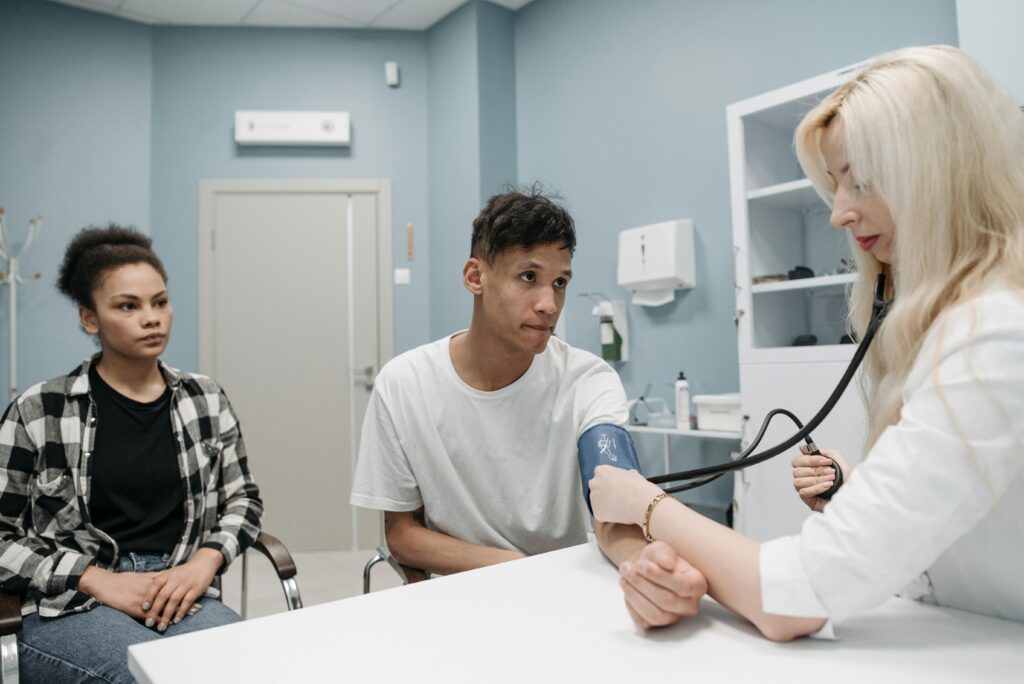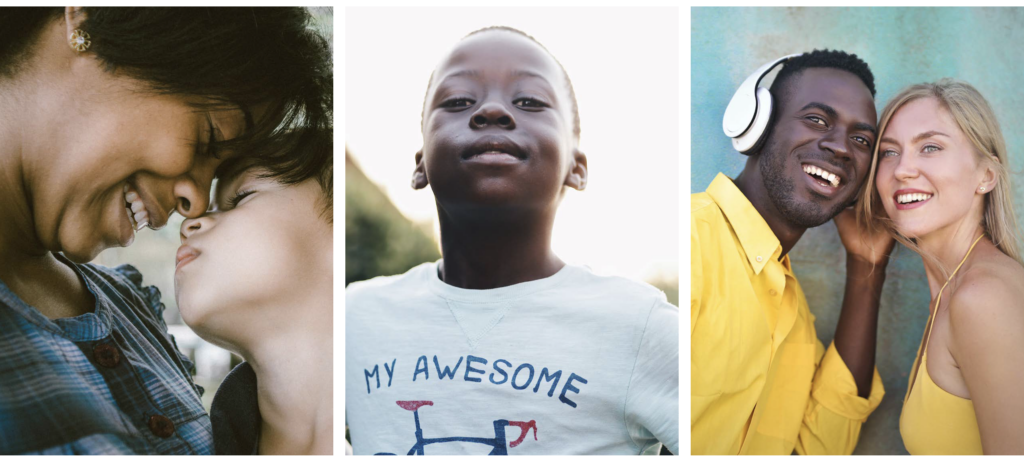Dear friends,
If 2020 was a year of trauma and awakening, then 2021 has been a year of crystallization and mobilization. We are consolidating the many truths that we did not see before, clarifying our focus, and honing our growing understanding of inequity and injustice into strategies for action.
More and more of our colleagues in health care are seeing the dimensions of racial equity clearly and seeking ways to improve them, through efforts on quality, safety, DEI, social determinants, population health management, community benefit, and institutionalized racism. There are so many such directions that demand our care and investment that they can appear dizzying, like scattered points of light to reach toward.
Yet our work at HealthBegins over the past ten years has taught us that these myriad strategies are not so separate. In fact, if seen through the right lens, they make up one constellation. And as we head into 2022, our next essential step is to connect them.
Working with our clients and partners as they’ve pursued their journeys toward equity this year, we have found that one key idea proves especially helpful for knitting their expanding efforts together:
Improve health equity by addressing the social and structural drivers that shape it within and across levels of action:
- improving individual social needs,
- reforming institutional practices and relationships,
- transforming community social determinants of health, and
- dismantling broader structural determinants of health equity.
This vision for multi-level action on the social and structural drivers of health equity is actually one that we’ve been applying and refining for years. And we see it now resonating more deeply with healthcare, social sector, and public health leaders as they seek to align their strategies—lending the clarity to make these efforts more purposeful and successful.
Here’s what we mean:
Shifting the frame
This year we’ve supported Medicaid plans like Health Net as they expand and refresh their long-standing health equity strategy. We’ve helped Blue Shield of California create a health equity evaluation plan to help staff across the enterprise understand and pursue a similar multi-level strategy. Working with the National Center on Medical-Legal Partnership, we’re helping Kaiser Permanente launch programs to address the legal problems and policy barriers that lead to structural violence and health problems for their patients and communities.
We’ve also had the privilege to bring the clarity of this vision—and the know-how to operationalize it—to help frame other broad-reaching initiatives. In May, the American Medical Association launched a landmark strategic plan to advance health equity and racial justice, which includes a bold upstream strategy that we are proud to have helped develop. Our multi-level approach also appeared in CMS resources for its watershed Accountable Health Communities model.
Stronger, faster—together
As health and racial equity move toward the center of our ecosystem, we see the need not only to connect the dots of our efforts but also connect with each other. We know from experience that we can get to equity better and faster if we go together, through collaborations on small and large scales. So HealthBegins has been connecting with partners at each opportunity—as we did with Health Leads, JSI, Human Impact Partners, and SIREN in co-creating “Bringing Light & Heat: A Health Equity Guide for Healthcare Transformation and Accountability.”
We’re also taking care to help our clients and allies forge their own partnerships with peers, both within and across sectors. And for aspiring clinical-community partnerships anywhere, we developed the One-Stop Shop for Healthcare and Community Partnerships resource library, working closely with the Commonwealth Fund and the Nonprofit Finance Fund.
In this twelfth month of the year, as we pause to reflect on where we’ve been and where we’re going, I’m nursing a bit of Zoom fatigue from the many, many conversations I’ve shared with clients, colleagues, and friends in this movement. And I’m taking that as a sign of good work done.
Come January, my colleagues and I will be ready anew to dive into our conversations and collaborations with you—ready to accompany our partners and navigate a world of more important work to do. Thank you, as always, for being on this journey with us.
Best,

Rishi Manchanda, MD, MPH.
Featured content
Providing Health Equity for Immigrants in a Time of Crisis
This moment presents an opportunity for healthcare leaders to harness the national attention focused on immigrant care to build investments, policies, and protections to improve care for these communities long-term.
HealthBegins Brief: Addressing Climate Health Inequities With The Community Health Needs Assessment
This HealthBegins Policy and Practice Brief invites every healthcare organization to immediately begin addressing the impact of climate change on health at the community level and with community participation.
Immigration Enforcement in Healthcare Settings: How to Prepare and Respond
Many of our healthcare partners are asking how they should prepare for potential ICE encounters on their premises and respond in the interim to concerns among patients and staff. These questions, answers, and resources provide some guidance.



